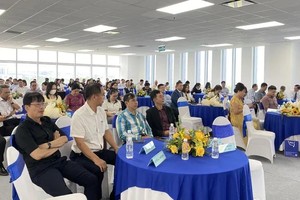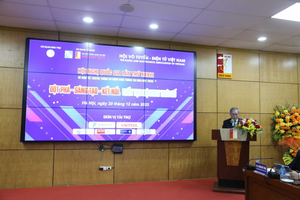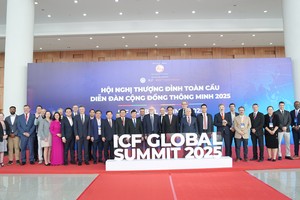
According to Chairman Truong Gia Binh of the Board of FPT Corporation, in the trend of digital transformation, green transformation and sustainable development, semiconductors are one of the core technologies to accelerate countries’ development. Vietnam has the potential to develop the semiconductor industry but the Southeast Asian country needs to address the shortcomings of mechanisms and policies, accelerate human resource training and further expand cooperation and investment development opportunities in the semiconductor technology ecosystem.
Meanwhile Nguyen Thi Le Quyen, Deputy Director of the National Innovation Center (Ministry of Science and Technology, said that the global semiconductor chip market is growing at a compound annual growth rate of 14 percent over the past 20 years and has the potential to become a trillion-dollar industry by 2030.
It is forecast that the demand for human resources in the semiconductor field will continue to increase. The global semiconductor industry is dominated by companies from the United States, China, South Korea, Japan and the Netherlands. China is estimated to need 400,000 personnel by 2030 meanwhile the United States needs 67,000 personnel. The Project on ‘Developing Semiconductor Industry Human Resources by 2030, with a Vision to 2050’ developed by the Ministry of Science and Technology has forecast that Vietnam needs about 50,000 semiconductor industry engineers. Of these, about 15,000 are microchip design engineers and 35,000 are in the fields of manufacturing, packaging, testing and other fields.
Vietnam needs to train 1,300 lecturers to teach at research institutes, universities, training institutions and enterprises. At the same time, it should expand the training network to support training at about 200 educational institutions.
Deputy Director Nguyen Thien Nghia of the Authority of Information Technology and Communications Industry under the Ministry of Information and Communications believes that in order to solve the semiconductor manpower problem, Vietnam not only needs to invest in training but also needs to attract businesses to invest in Vietnam to develop the domestic semiconductor market.
He explained that although Vietnam has many advantages in semiconductor technology, its contribution to this global field is small; therefore, promoting the formation of a support ecosystem for chip manufacturing enterprises will help Vietnam increase its attractiveness to major chip manufacturing corporations, making Vietnam a country with more semiconductor chip manufacturing activities, Mr. Nguyen Thien Nghia emphasized.
























